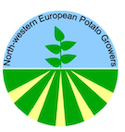The NEPG (North-Western European Potato Growers) is uncertain about the current situation for potatoes and does not expect any major changes when it comes to market demand in the coming weeks. Due to the Covid-19 pandemic, there is little demand for free potatoes from the processing industry and prices are at an extremely low level. The other big challenge is the current (threat of) sprouting reported by the top five potato producing countries. This could take a toll on the supply in the coming months.
Due to the pandemic, the processing industry is working at 80 to 90% of its normal capacity; a situation which will likely continue until the reopening of the European HoReCa and the resumption of exports outside the EU. At the start of 2021, producers and processors on the continent will negotiate contracts for the 2021/22 season and fewer contracts are expected to be offered. The NEPG has stepped up its initial calls to reduce the acreage by 15% and is now aiming for a 20% reduction.
Producers in Europe are dealing with greater technical and economic risks, as well as with a greater demand for sustainability. Producers would like to meet that demand, but fear that the additional costs entailed will not be covered.
Germination
This season is the first with CIPC no longer authorized as an anti-germinator. The alternative solutions offered to producers are less satisfactory (largely because of the hot summer and autumn, which has interrupted the dormancy) and are not always available in sufficient quantities. Despite the efforts made by producers to adapt to this situation as well as possible, all NEPG countries report early germination in stocks.
Storage has become much more expensive (investments in warehouses, higher costs for “new” anti-germ products, cost of treatments, etc.) than ever before, especially for long-term storage until summer 2021. The cost of anti-sprout treatments has become far too expensive for non-marketable free potatoes and their use is not considered in many cases.
Many free potatoes have already left the warehouses or will soon be used for export, animal feed, the starch industry and biogas. Storing them for longer is considered a risk at the current price level.
More domestic consumption
The positive note is that, in all NEPG countries, consumption studies show an increase in the domestic consumption of fresh potatoes; on average by 11%. Exports are also currently at a good level. The growing export of fresh potatoes to Africa is remarkable. The Netherlands, for example, reported an increase from 30,190 to 58,200 tons, with Senegal as the main customer, with 21,600 tons.
The NEPG is following the latest negotiations between Great Britain and the European Union, as a no-deal on Brexit would cause further difficulties in the export markets.
For the NEPG, it is at this time impossible to draw conclusions or give advice on the current campaign, as there are still too many uncertainties.
For more information:
Loïc Le Meur
UNPT
Tel: +33(0)144694243
M: :+33(0)623174035
l.lemeur@producteursdepommesdeterre.org
